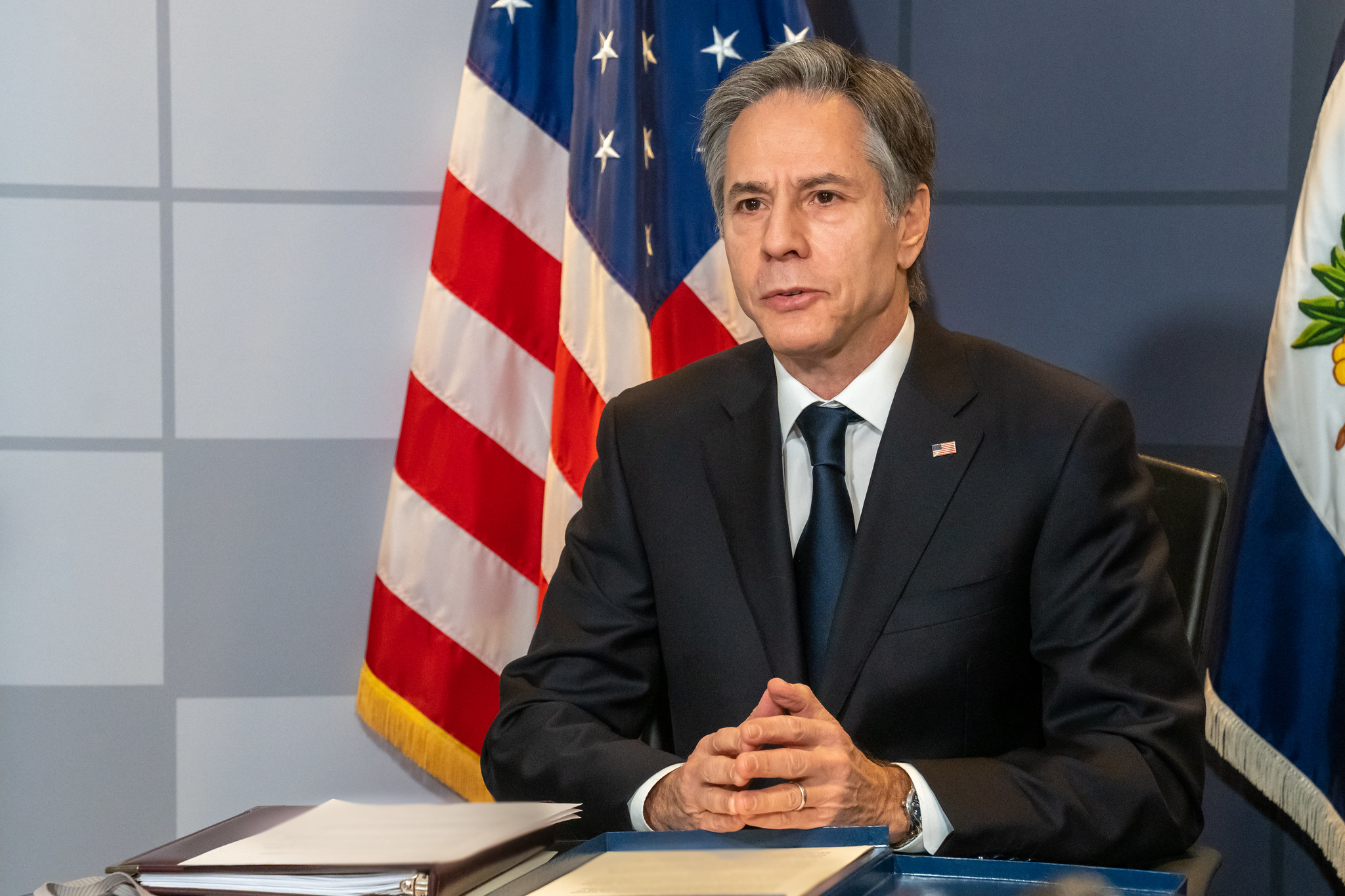The Biden administration’s US$7 billion pledge to extend Washington’s economic engagement with the freely associated states and an additional US$2 billion for other allies in the Indo-Pacific region are critical components of the national security strategy aimed at countering China, Secretary of State Antony Blinken said.
The renegotiated economic packages for Palau, the Federated States of Micronesia and the Marshall Islands under the Compacts of Free Association are incorporated into the White House’s China-centric budget proposal for 2024.
Washington has ramped up its efforts to please the FAS, expediting the completion of the 20-year funding negotiations ahead of the expiration of the compact’s economic provisions lest they succumb to the lure of Beijing’s cash diplomacy.
“Our budget proposal will allow us to further deepen our diplomatic footprint in the Indo-Pacific – from new missions in the Pacific islands, to a surge of new positions in the region and beyond, including in the areas of greatest contestation with Beijing like technology, economics, and regional and international organisations,” Blinken said, testifying before the U.S Senate appropriations committee.
Besides the Compact funding, the proposed budget also includes $2 billion in new investments in “high-quality, sustainable infrastructure, rather than low-quality, opaque, extractive projects” for other countries in the Indo-Pacific region.
Infusing fresh funds into the region, Blinken said, will “bolster Indo-Pacific economies and help the United States compete in areas where the People’s Republic of China currently dominates.”
“Altogether, these funding streams ensure that we can meet a generational challenge and demonstrate our long-term commitment on issues that matter most to key countries in the region – so that the United States remains the partner of choice,” Blinken said.
“Now, we’re not demanding that other countries choose between us and China – but rather, we aim to offer a more attractive choice. If we can spark a race to the top, so much the better,” Blinken told senators.
“Beijing understands that diplomacy is a critical tool. It’s why it’s invested heavily in building up its own diplomatic capacity, its own diplomatic reach, and in fact it’s increased its diplomatic budget last year at a faster rate than its military one,” he added.
Blinken noted that Beijing has more diplomatic posts around the world than the U.S.
“If we’re serious about this competition, we have to demonstrate the same diplomatic seriousness of purpose across the board,” he added.
This month, the U.S. launched its embassy in Tonga, following the opening of an embassy in the Solomon Islands. Washington has also announced plans to open an embassy in Vanuatu.
“This budget positions the United States to up our game in the Indo-Pacific: the frontline of our competition with China,” Blinken said.
The new investments, he added, will target key priorities for the region, including maritime security, disease surveillance, clean energy, digital technology, underseas communications cables and critical mineral mining.
“During this decisive decade, our efforts and investments – together with our partners – will determine whether we succeed in advancing our shared affirmative vision for the international system, or whether the PRC can erode or replace the global rules and norms that guarantee peace, security, and stability in the world,” Blinken said.
“We cannot dictate Beijing’s path. We cannot wait for China to change its trajectory. But we can put ourselves in a position of strength to compete intensely to shape the broader strategic environment around China and to advance our vision,” he added.
The Department of Defense’s budget request for the Pacific Deterrence Initiative, or PDI, is a full 40 percent higher than last year’s request, focusing on its goal to outpace China’s military expansion, according to Secretary of Defense Lloyd J. Austin III.
“The PRC is our only competitor, with both the intent and increase the capacity to reshape the international system to suit its autocratic preferences,” Austin told the appropriations committee.
Austin said the department is now beefing up its force posture in the Pacific, including US$9.1 billion aimed at the PDI to fund more agile approaches to testing and acquisition and development of new operational concepts for how the joint force is employed.
“”We work with the Department of State to help prevent conflict from breaking out in the first place. We protect the free and open trade lanes that drive the world economy,” Austin said. “Most countries in the region share a common vision of an open and inclusive Indo-Pacific, free of bullying and coercion,” he added.
SOURCE: PACIFIC ISLAND TIMES/PACNEWS














